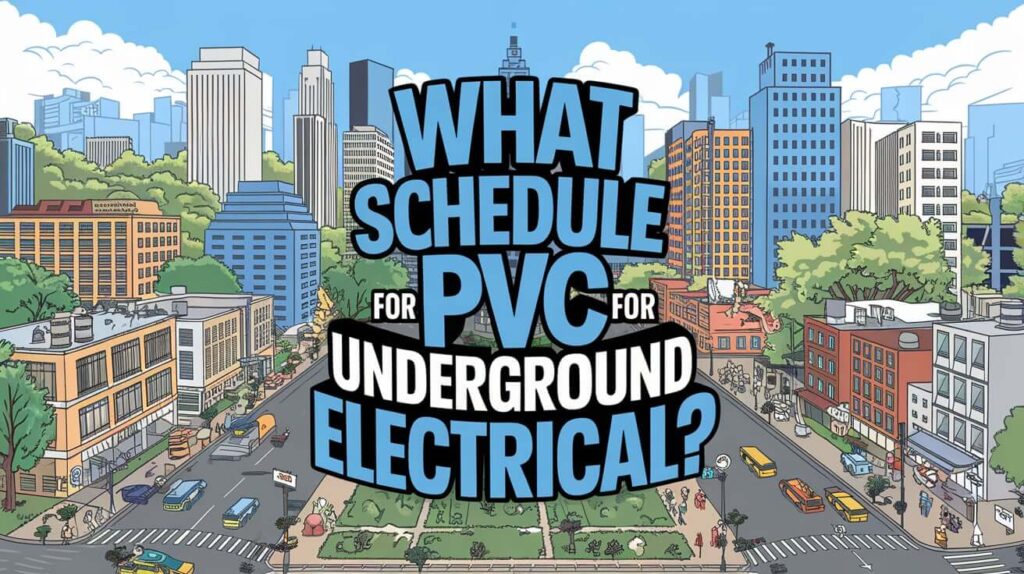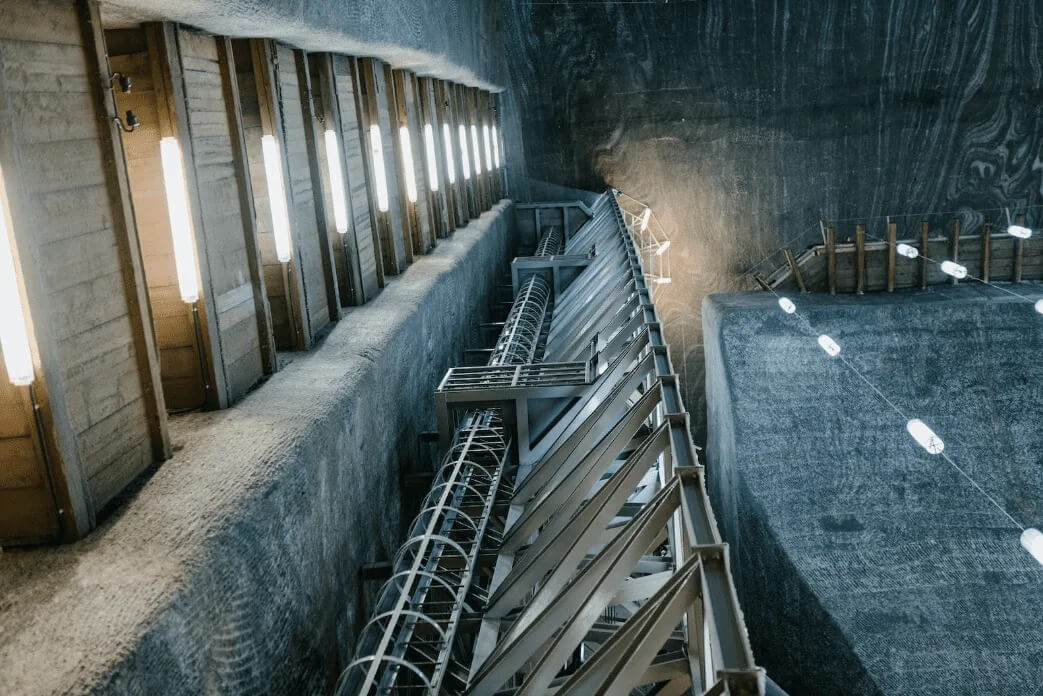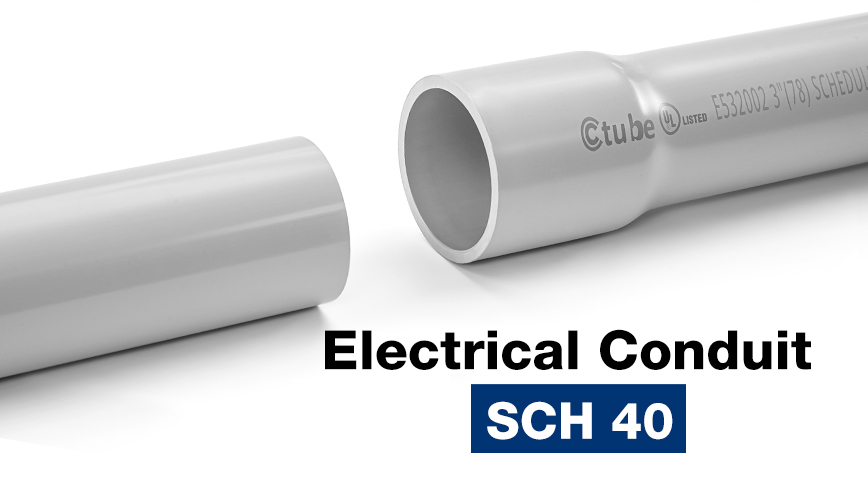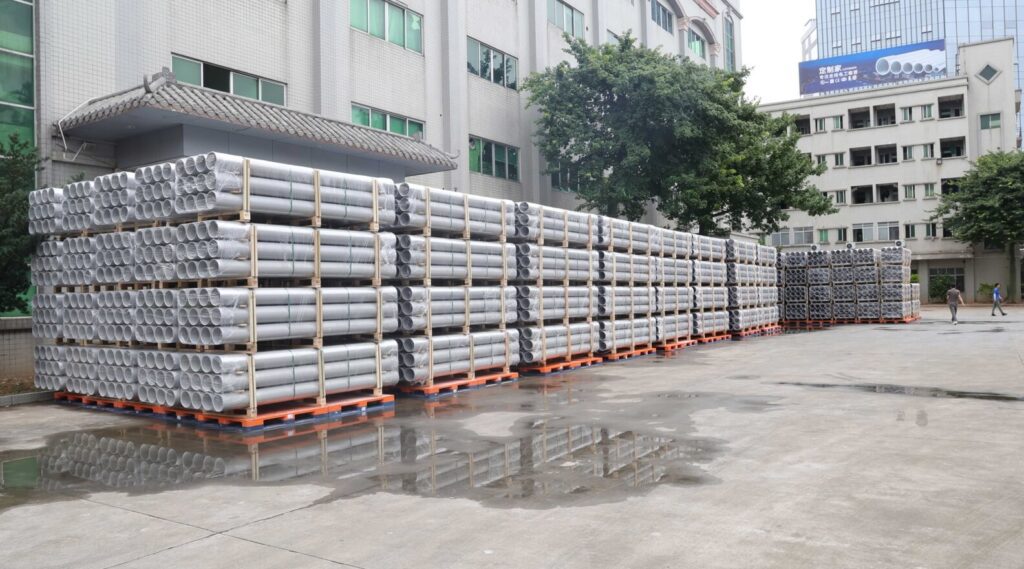What Schedule PVC for Underground Electrical?
Introduction
PVC conduit is a popular choice for underground electrical installations due to its durability, resistance to corrosion, and affordability. However, selecting the right schedule rating for PVC conduit is crucial for ensuring a safe and reliable electrical installation. In this post, we’ll explain the different schedule ratings for PVC conduit and provide tips for choosing the best schedule for your underground electrical project.
Understanding PVC Conduit Schedule Ratings
Schedule rating is a term used to describe the wall thickness and pressure capacity of PVC conduit. The higher the schedule rating, the thicker the wall and the higher the pressure capacity of the conduit. The most common schedule ratings for PVC conduit used in underground electrical installations are Schedule 40, Schedule 80 PVC conduit, and Schedule 80 electrical conduit.
Schedule 40 PVC Conduit
Schedule 40 PVC conduit is the most common and affordable type of PVC conduit. It has a wall thickness of 0.154 inches and can withstand pressures of up to 120 psi. Schedule 40 PVC conduit is suitable for most residential and light commercial underground electrical installations.
Schedule 80 PVC Conduit
Schedule 80 PVC conduit is thicker and stronger than Schedule 40 PVC conduit, with a wall thickness of 0.218 inches and a pressure capacity of up to 200 psi. It is ideal for underground electrical installations that require extra durability, such as those in areas with heavy foot or vehicular traffic.
Differences between Schedule 40 and Schedule 80 PVC Conduit
The main difference between Schedule 40 and Schedule 80 PVC conduit is their thickness and pressure capacity. Schedule 80 PVC conduit is more durable and can withstand higher pressures than Schedule 40 PVC conduit, making it suitable for more demanding underground electrical installations. However, it is also more expensive than Schedule 40 PVC conduit.
Factors to Consider When Choosing a Schedule for PVC Conduit for Underground Electrical
Several factors should be considered when choosing a schedule for PVC conduit for underground electrical installations
Depth of burial: The deeper the conduit is buried, the higher the pressure it will be subjected to. If the conduit is buried deeper than 18 inches, Schedule 80 PVC conduit is recommended.
Soil type: The type of soil can affect the pressure that the conduit will be subjected to. If the soil is rocky or has a high water table, Schedule 80 PVC conduit is recommended.
Electrical load: The amount of electrical load that the conduit will carry can affect the pressure it will be subjected to. For installations with high electrical loads, Schedule 80 PVC conduit is recommended.
Environmental conditions: The environment in which the conduit will be installed can affect its durability. If the installation is in an area with heavy foot or vehicular traffic, or in an area with exposure to harsh weather conditions, Schedule 80 PVC conduit is recommended.
Local regulations and codes: Local regulations and codes may specify the type of PVC conduit that is required for underground electrical installations.
Best Practices for Installing PVC Conduit for Underground Electrical
Proper installation techniques are crucial for ensuring a safe and reliable underground electrical installation. Here are some best practices for installing PVC conduit for underground electrical:
Proper trenching and bedding: The trench in which the conduit will be installed should be at least 18 inches deep and wide enough to allow for proper bedding. The bedding material should be a minimum of 4 inches deep and should be compacted.
Correct installation techniques: The conduit should be installed in accordance with local regulations and codes, which may require specific burial depths, minimum bend radii, and proper use of fittings and couplings.
Use of appropriate fittings and couplings: The use of appropriate fittings and couplings is crucial for ensuring a watertight and secure connection between sections of PVC conduit. All fittings and couplings should be made of PVC material and should be rated for use with the specific schedule of PVC conduit being used.
Conclusion
Choosing the right schedule rating for PVC conduit is crucial for ensuring a safe and reliable underground electrical installation. Schedule 40 PVC conduit is suitable for most residential and light commercial installations, while Schedule 80 PVC conduit is recommended for more demanding installations that require extra durability. Schedule 80 electrical conduit is suitable for installations that require extra heat resistance. When selecting a schedule for PVC conduit, several factors should be considered, including the depth of burial, soil type, electrical load, environmental conditions, and local regulations and codes. By following best practices for installing PVC conduits, such as proper trenching and bedding, correct installation techniques, and the use of appropriate fittings and couplings, you can ensure a safe and reliable underground electrical installation.
What Schedule PVC for Underground Electrical? Read More »




